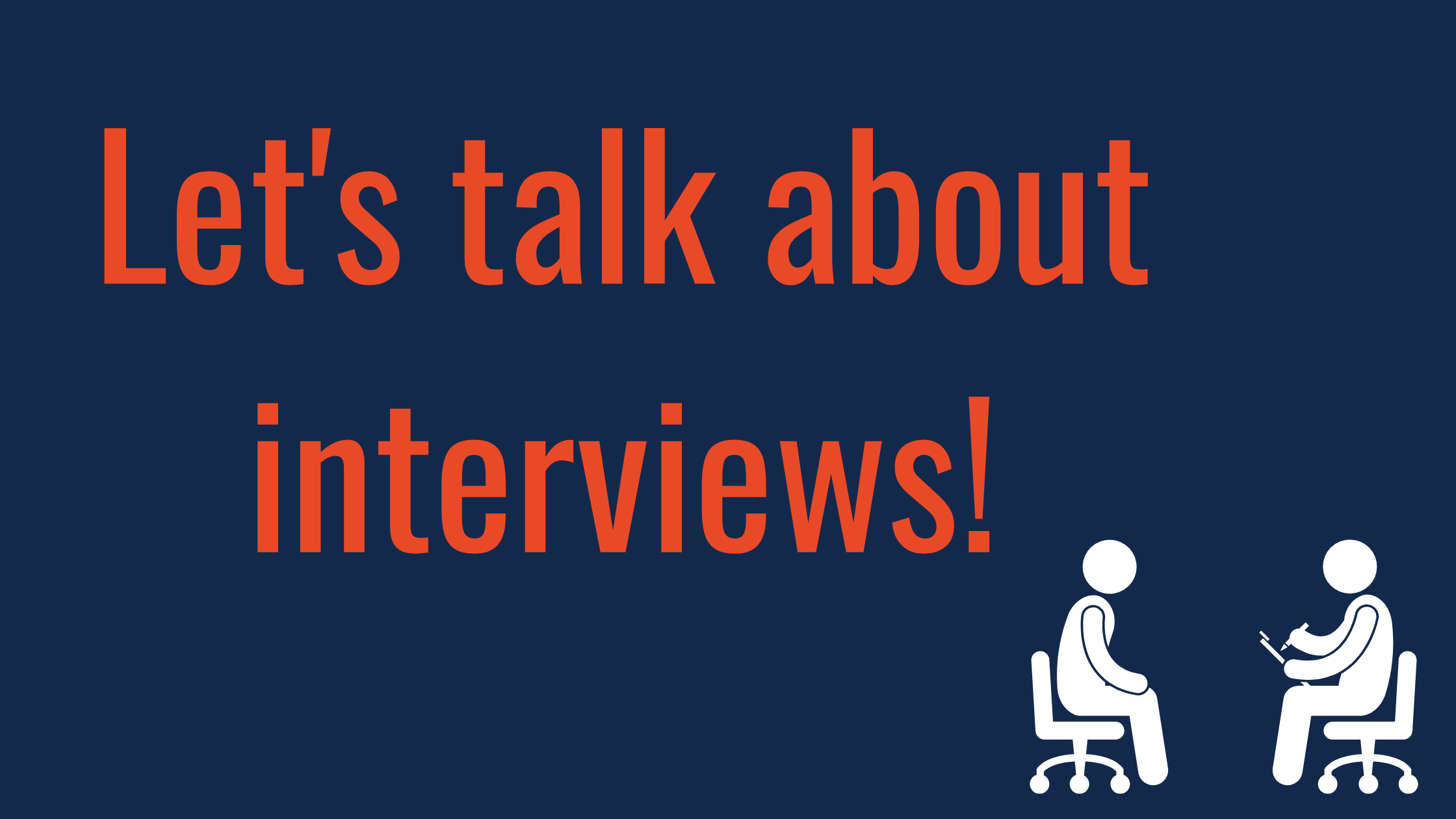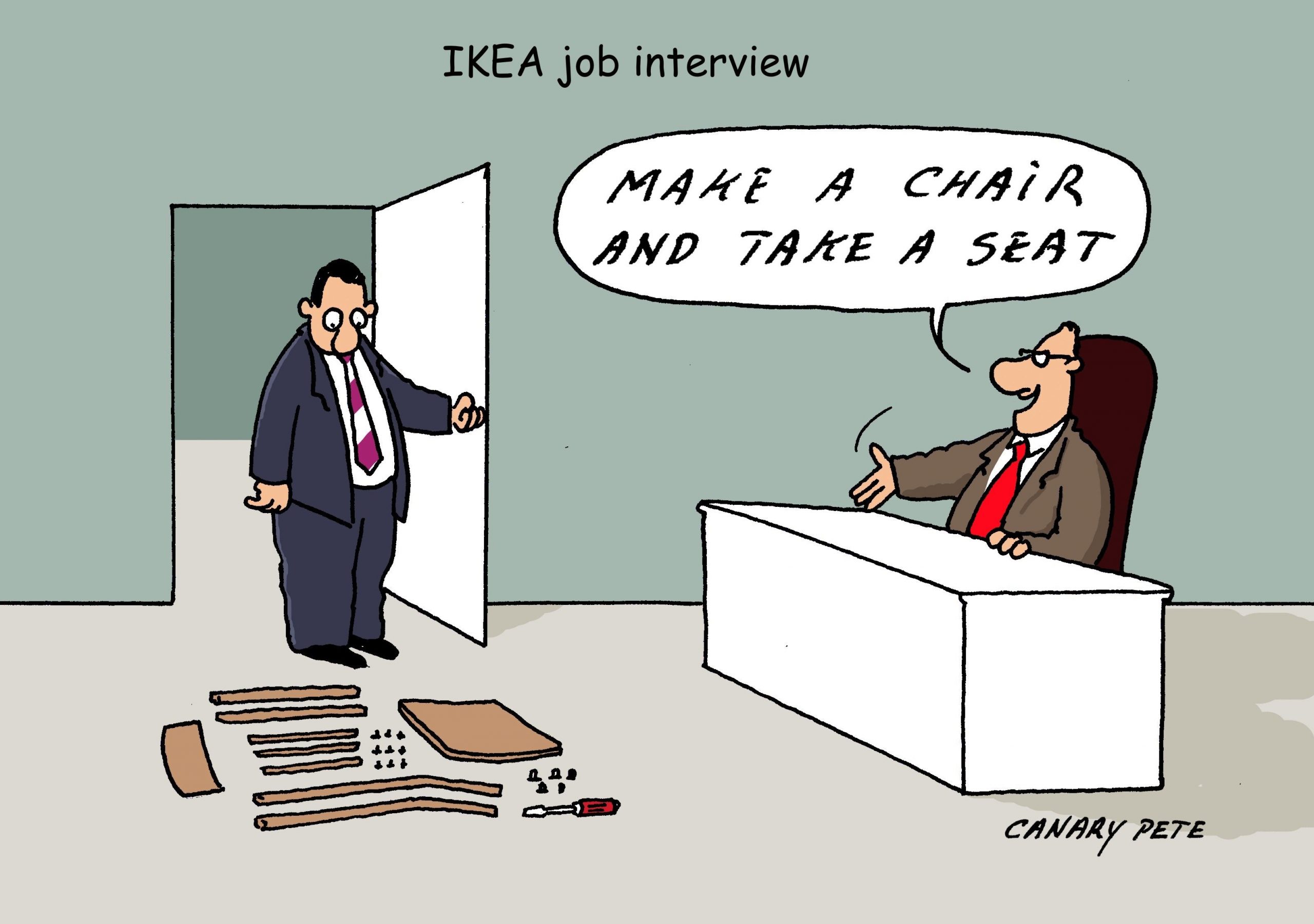As a pre-law student, you will likely come across many opportunities to interview. Perhaps you are interviewing at the law school of your dreams or for a summer internship. Maybe you have started networking and have a few informational interviews scheduled. Regardless, interviewing is an important aspect to many opportunities you will have as an undergraduate student and will be an essential skill as you look toward a career in law.
No matter what type of interview you have coming up, we are here to help! In this post you will find helpful insights and information you need to know about interviews–what they are, how to prepare for them, and what to expect. Happy Interviewing!
INTERVIEWING FOR:
INTERNSHIPS/SUMMER POSITIONS
What is the purpose of the interview? Interviews are generally part of an internship application process. This is also true of summer positions, regardless of whether they are paid. Employers and Internship Hosts want to get to know you and evaluate if you are a good fit for the position. Applicants also have an opportunity to get to know the employer/internship host and ask questions.
INTERVIEWING FOR:
LAW SCHOOLS OR SPRING VISITS
What is the purpose of the interview? In addition to admission, law schools might use the interview to screen candidates for scholarships, research opportunities, or special programs such as law school ambassadors. It is definitely worth an applicant’s time and effort to take the interview seriously.
TIP: Know what kind of interviews your preferred law schools offer.
Research your law schools’ websites to see whether and what format of interview is offered. Not all law schools offer interviews as part of their admissions process and the format of interviews can vary between different institutions. It is important to know if interviews might be part of your experience. We’ve provided some examples of interview formats below for reference!
-
-
- First come, first served interviews–Some law schools like Northwestern offer interview slots to all applicants on a first-come, first-served basis.
-
- Note – IF you are applying Early Decision then you must interview and it must be complete by the ED deadline.
-
- Group interviews–Some schools may offer group interviews in selected cities or virtually.
- By invitation only – Some law schools like University of Chicago choose to interview applicants after applications are submitted and by invitation only.
- Recorded interviews – Some law schools are now offering applicants the opportunity to record an interview. Usually this is how it works: You are given a prompt, and then 2-3 minutes to think about that prompt. Then the webcam records you for a few minutes while you give your answer to the prompt.
- First come, first served interviews–Some law schools like Northwestern offer interview slots to all applicants on a first-come, first-served basis.
-
INTERVIEWING FOR:
NETWORKING/INFORMATIONAL INTERVIEWS
What is the purpose of the interview? Informational interviews are a wonderful way to network with professionals and to learn about the profession you are interested in. Typically informational interviews are short and rely on you to come prepared with questions for the expert. While these may be less formal than a job or law school interview, you still need to be prepared, professional, and most importantly, yourself.
Securing an informational interview can be as simply as reaching out and asking. Don’t be intimidated; this is an opportunity for you to buy them coffee and ask about their professional life. Here’s a resource for planning your informational interview. Check out this additional resource on the topic from the Career Center.
GENERAL INTERVIEWING TIPS
ALWAYS BE PREPARED:
-
- Do your research. You should expect them to ask you “Why this law school or this employer or this opportunity?” and they will want to hear specific answers. Take a careful look at the appropriate websites, blogs, videos, and/or news articles. Get to know the place you are interviewing at.
- Be prepared with specific talking points about the school or employer that interests you. For example, if this is a law school interview, you may want to research a particular journal, clinic, moot court, externship, or certificate program that is interesting to you. If this is an internship or summer position, understand the work they do and how you can contribute.
- Carefully review your resume and be prepared to discuss anything on it.
- You may also be asked something like “What are your career goals?” or “Where do you see yourself in 5/10 years?,” or even “Why do you want to be a lawyer?” and you should be prepared to discuss your career interests.
- Decide how you will address the inevitable “What are your strengths and weaknesses” question.
- Behavioral interviewing – “Tell me about a time when…”. This mode of interviewing will ask you to address a hypothetical or refer back to prior situations and experiences. For example, you might be asked to tell about a time when you resolved a conflict, managed a team project, made a mistake, or made a big decision.
- Practice. Sign up for a mock interview with Career Services, or have a lawyer/professor/trusted person sit down with you and ask you mock questions. Think carefully about what you want to say, and how you can best convey it.
- Know the format – plan accordingly. Many interviews are now conducted via Zoom/online format. It is important to know the format and plan accordingly for best success. Make sure you have equipment that is working and select a location that is a quiet place without interruptions. Also, take a picture with your webcam before the interview so that you can see what’s behind you…you may be surprised to see that pile of laundry or unmade bed in the background.
“At” the interview:
Although many schools, companies, and organizations have moved to online formats for interviewing, almost all of the same “rules” that apply for traditional interviews are true for online formats as well. No matter what type of interview you have, be sure to follow these important tips. Make sure that you look professional and
-
- DO NOT BE LATE under any circumstances. Allow yourself plenty of time for parking/traffic/restroom. If you absolutely cannot avoid being late, call the office to let them know. This applies to online interviews as well. Make sure you are online and everything is working properly. Don’t assume that because it is online that you can hop on 30 seconds before.
- Make eye contact, introduce yourself, and shake hands (if appropriate). (You would be surprised how many people skip this. Seriously.
- Dress up. This is not a business-casual situation; business formal is best unless the interview parameters explicitly state something else. Even if you are on Zoom or online, treat it just as seriously and professionally as if you were in-person.
- Engaging in small talk is not only socially necessary but also gives the interviewer an idea of how good you are at making people feel comfortable talking with you–a critical skill to be a successful lawyer. This might even be part of the interview itself.
-
- Some interviews may be “recorded” and are conducted by question prompts instead of a traditional back and forth conversation. Think about ways you can help express your personality if small talk is not part of your interview structure.
-
- Bring questions for the interviewer. Most interviewers will ask if you have any questions for them. Use the opportunity to ask some thoughtful questions. Some examples might include:
-
-
-
- What are the most important qualities in a Law School X student or, in a Business Y employee or intern?
- How would you describe the student body/atmosphere here?
- What challenges do you see current law students facing?
- What’s the best advice you have for an aspiring law student/lawyer?
-
-
-
- Thank the interviewer for their time. Reiterate your interest in the law school or position you are applying to.
After the interview
-
- Follow up with an email thanking the interviewer for their time.
- Include something specific that you learned or enjoyed about the interview. Examples:
-
- Thank you for your advice about _______________; I found that very insightful.
- It was so interesting to hear your perspective on the unique qualities of this school or position.
- I appreciate your candid advice on ____________________.
-
- Take the opportunity–again–to reiterate your interest.
- Reflect on the interview. What went well? What could you improve? What did you learn that was really useful?
- Celebrate! Congratulations, you completed the interview!
Finally, check out these tips on interviewing from The Career Center.

